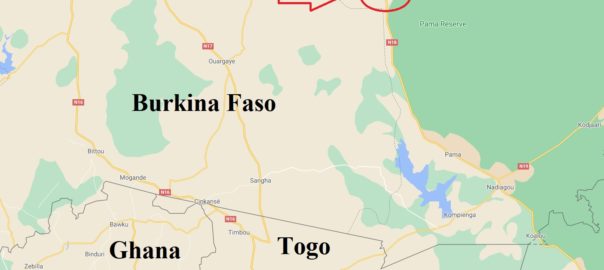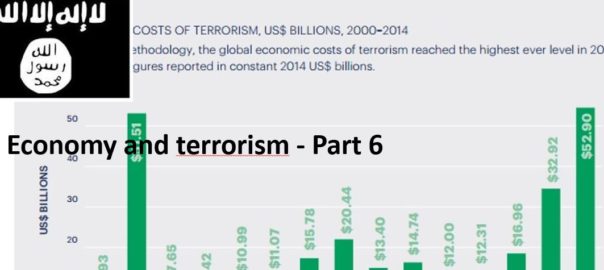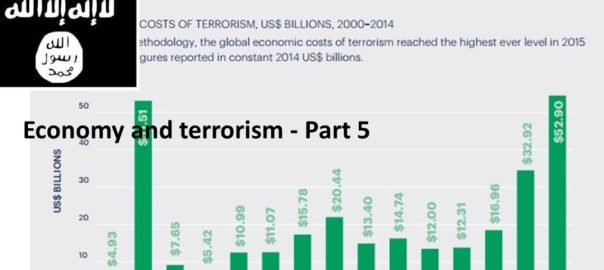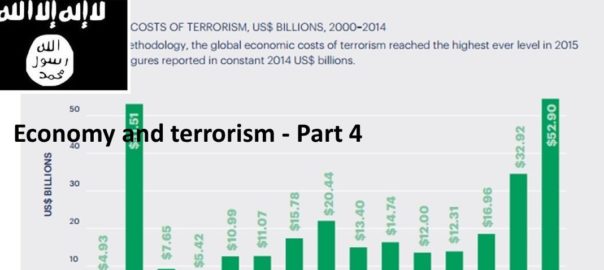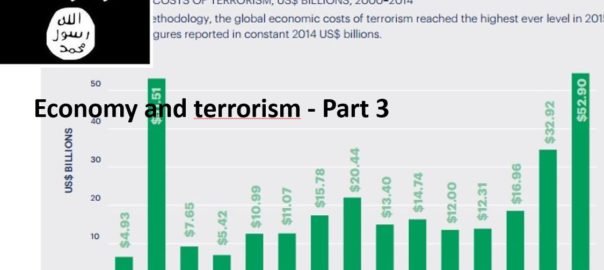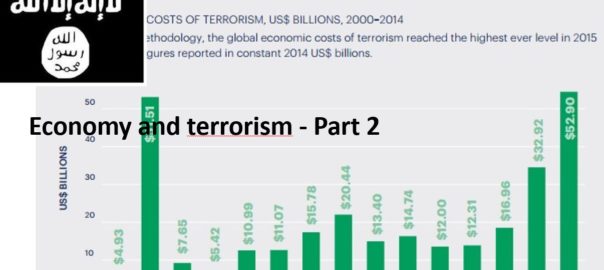Martedì 27 aprile il Ministero degli Esteri spagnolo rendeva nota la morte dei reporter David Beriain e Roberto Fraile, uccisi in un attacco perpetrato da presunti jihadisti nel sud-est del Burkina Faso; nell’assalto rimaneva ucciso anche il cittadino irlandese Rory Young, a capo dell’organizzazione Chengeta Wildlife, molto attiva nell’anti-bracconaggio in tutto il Continente nero. Continue reading
Tag Archives: Daesh
EU economic losses in the haze of jihad. Impacts on cryptocurrency businesses (part 6) – by Daniele M. Barone
The exploitation of cryptocurrency for terrorism purposes is an evolving threat. Continue reading
EU economic losses in the haze of jihad. Still stuck in an affordable blame game on content moderation (part 5) – by Daniele M. Barone
In November 2020, following the terrorist attacks in France, Germany, and Austria, the European Council[i] Continue reading
EU economic losses in the haze of jihad: Globalization challenges (part 4) – by Daniele M. Barone
As analyzed in the previous articles, the impact of a terrorist attack can affect a country’s peace dividends[i] and, as a consequence, its whole economy.[ii] Continue reading
EU economic losses in the haze of jihad: Government spending: the political costs of counter-terrorism (part 3) – by Daniele M. Barone
Unsurprisingly, the share of government expenditure grows when terror attacks occur as public spending on defense and security increases.[i] Continue reading
EU economic losses in the haze of jihad: The impacts on domestic businesses (part 2) – by Daniele M. Barone
Researches and surveys, so far, highlight how the negative impact of jihad on the EU economy creates a trickle-down effect on people and fields of business that can vary with the maturity of an economy but also with the nature and target of the attack. Continue reading
EU economic losses in the haze of jihad: The impacts on domestic businesses (part 1) – by Daniele M. Barone
Jihadist terrorist attacks perpetrated on European soil during the last months have heightened fears that a new terror wave could be building across the EU.[i] Continue reading
Terror in Vienna: a risk assessment perspective – by Jörg Peschak
On the night before the second lockdown on November 2nd, 2020 at 8 pm, Austria’s capital was hit by a terrorist attack. On the macrolevel, it is the latest of a series of events that began in France with the republication of the caricatures of Charly Hebdo followed by the beheading of a teacher for showing the caricatures and an attack on people at the cathedral in Nice. Now the scene moved to Vienna. But why Austria? Could it have been prevented? Continue reading
Terrorismo islamista: Francia sotto pressione – by G. Giacalone, M. Lombardi, M. Maiolino
La linea del tempo
La barbara uccisione del docente di educazione civica, Samuel Paty, mostra una serie di fattori dei quali non si può non tener conto se si vuole andare oltre cronache e sensazionalismi per capire in che direzione si sta evolvendo il terrorismo di stampo islamista in Europa e in particolare in Francia. Continue reading
Three generations of jihadist preachers in Italy compared – by Alessandro Boncio
Introduction. The period of jihadi terrorism that Western countries are experiencing currently, could be labelled as a moment of reshaping and transformation. Following the collapse of its Syrian-Iraqi creature, ISIS is repositioning itself physically and ideologically; at the same time, al-Qa’ida linked groups are constantly strengthening its files and ranks, still strong of its cultural appeal[2]. Continue reading
Tajiki in Germania – by Giovanni Giacalone
Una cellula dell’Isis composta da cinque cittadini tajiki tra i 24 e i 32 anni sono stati arrestati in Germania. Stavano progettando attentati contro obiettivi militari statunitensi e nei confronti di un individuo indicato come “critico dell’Islam”. Continue reading
COVID-19: lo Stato Islamico rilancia. Propaganda e minacce ai tempi dell’infodemic -by Daniele Plebani
We’re not just fighting an epidemic; we’re fighting an infodemic. Fake news spreads faster and more easily than this virus, and is just as dangerous. – Tedros Adhanom Ghebreyesus, Direttore Generale dell’OMS[1] [The] fear of the epidemic among them has done more than what the epidemic itself has done– al-Naba 226[2] Continue reading

